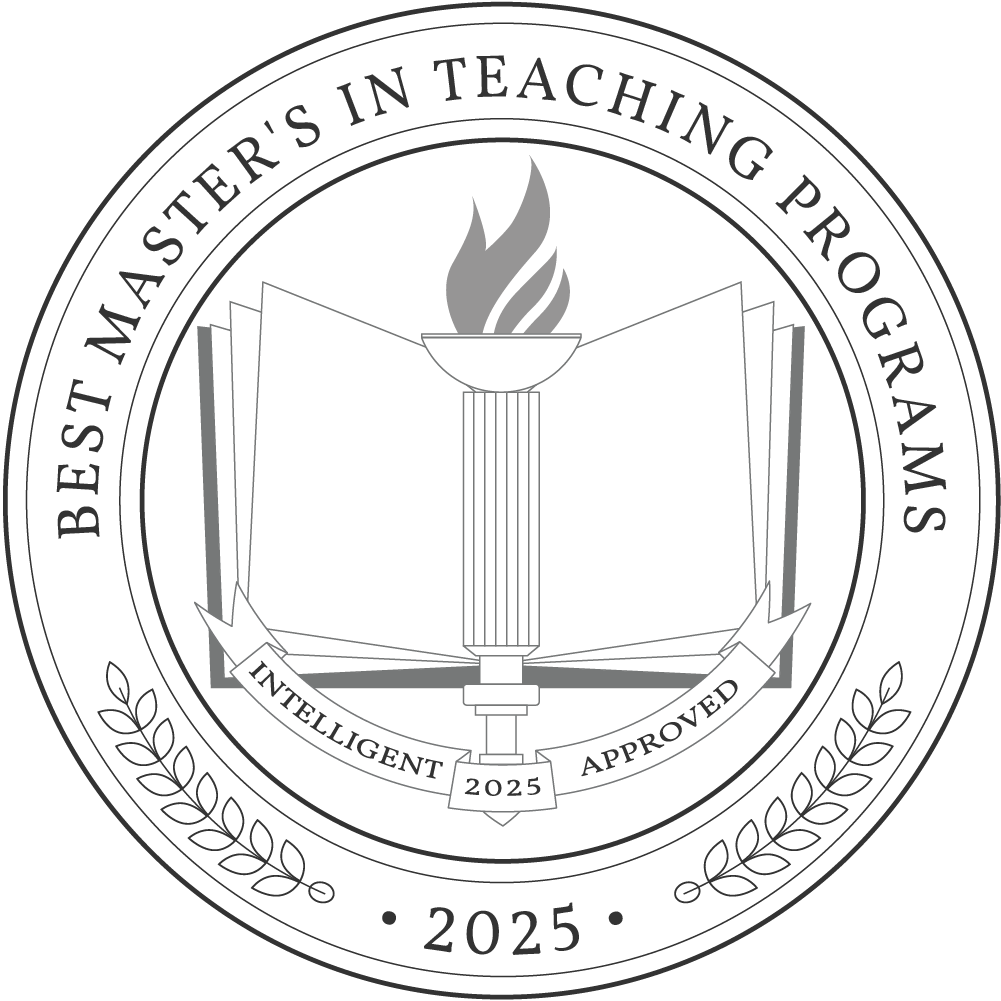A master’s degree in teaching program prepares students for several careers in education, including principal, teacher, career counselor, school administrator, and instructional coordinator. Salaries in this field vary based on role, experience level, and other factors, but the U.S. Bureau of Labor Statistics (BLS) reports a median annual salary of $61,810 for middle-school teachers, $66,490 for instructional coordinators, and $101,320 for school principals.
It usually takes a full-time student one to two years to complete a master’s degree program. It may take 3-4 years of part-time study to complete the same program. On average, it costs $20,513 per year in tuition to earn a graduate degree.
Why Trust Us
The Intelligent.com Higher Education Team is dedicated to providing students with independent, equitable school and program rankings and well-researched resources. Our expert-driven articles cover topics related to online colleges and programs, paying for school, and career outlooks. We use data from the U.S. Department of Education’s College Scorecard, the National Center for Education Statistics, and other reputable educational and professional organizations. Our academic advisory team reviews content and verifies accuracy throughout the year for the most current information. Partnerships do not influence rankings or editorial decisions.
- Analyzed over 2,000 national, accredited, and nonprofit colleges and universities
- 800+ rankings pages are reviewed and updated yearly
- Content is informed by reputable sources, surveys, and interviews with academic advisors and other experts
- Over 100 data points are reviewed for accuracy and quality throughout the year, including sources
How we rank schools
Our list features the best Master’s in Teaching degree programs at top colleges nationwide. Each school featured is a nonprofit, accredited institution — either public or private — with a high standard of academic quality for post-secondary institutions.
We evaluated each school’s program on tuition costs, admission, retention and graduation rates, faculty, reputation, and the student resources provided for online students. We collected data from trusted sources like the National Center for Education Statistics, individual school and program websites, school admissions counselors, and other data sources. Then, we calculated the Intelligent Score on a scale of 0 to 100 based on the following criterion:
Academic Quality:
- Admission rate versus enrollment rate
- Retention rate of students who return after year one
- Accreditation status (regional and programmatic)
- Nonprofit status, both private and public institutions
Graduation Rate
- Overall graduation rate
- Total number of currently enrolled students, including diversity metrics
- Student-to-faculty ratio
Cost and ROI
- In-state and out-of-state per-credit tuition rates and fees
- Required credits to graduate
- Earning potential after graduation
- Availability of federal student loans, scholarships, and other financial aid options
Student Resources
- Available student services for online-only and hybrid programs
- On-campus amenities like tutoring centers and the number of libraries
Read more about our ranking methodology.
Best 31 Accredited Master’s in Teaching Programs
FiltersInstitution Type
Status
- Intelligent Score
- Alphabetically By University Name
- Acceptance Rate
- Enrollment
- In-state Graduate Tuition
- Out-of-state Graduate Tuition
- In-state Undergraduate Tuition
- Out-of-state Undergraduate Tuition

Teachers College at Columbia University
Intelligent Score: 99.83In-state: $57,864
Out-of-state: $57,864
In-state: $49,024
Out-of-state: $49,024
SAT: 1460-1570
ACT: 33-35
$2,029
On-Campus, Hybrid
Association for Advancing Quality in Educator Preparation
32

Northwestern University
Intelligent Score: 98.82In-state: $58,227
Out-of-state: $58,227
In-state: $56,067
Out-of-state: $56,067
SAT: 1430-1550
ACT: 33-35
$1,513
On-Campus, Hybrid
Illinois State Board of Education
32-42

University of California, Los Angeles
Intelligent Score: 97.72In-state: $11,442
Out-of-state: $41,196
In-state: $11,442
Out-of-state: $11,442
SAT: 1310-1530
ACT: 30-35
Resident: $1,007
Non-Resident: $1,846
On-Campus
Western Association of Schools and Colleges Senior College and University Commission
36

Stanford University
Intelligent Score: 96.83In-state: $55,473
Out-of-state: $55,473
In-state: $54,315
Out-of-state: $54,315
SAT: 1420-1570
ACT: 31-35
$1,272 - $1,305
On-Campus
Western Association of Schools and Colleges Senior College and University Commission
45
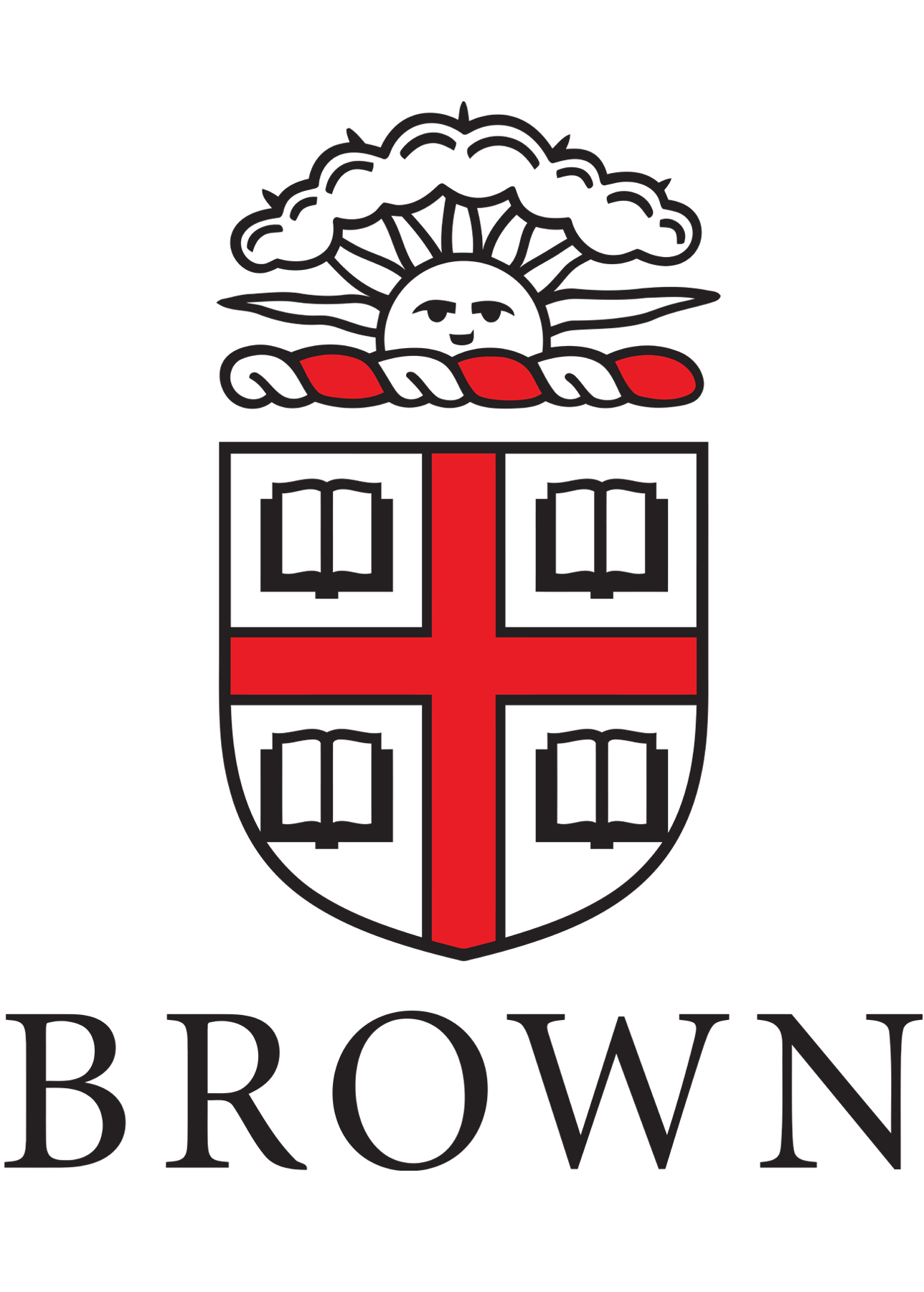
Brown University
Intelligent Score: 96.18In-state: $59,254
Out-of-state: $59,254
In-state: $59,254
Out-of-state: $59,254
SAT: 1440-1560
ACT: 33-35
$2,188
On-Campus
New England Commission of Higher Education
30
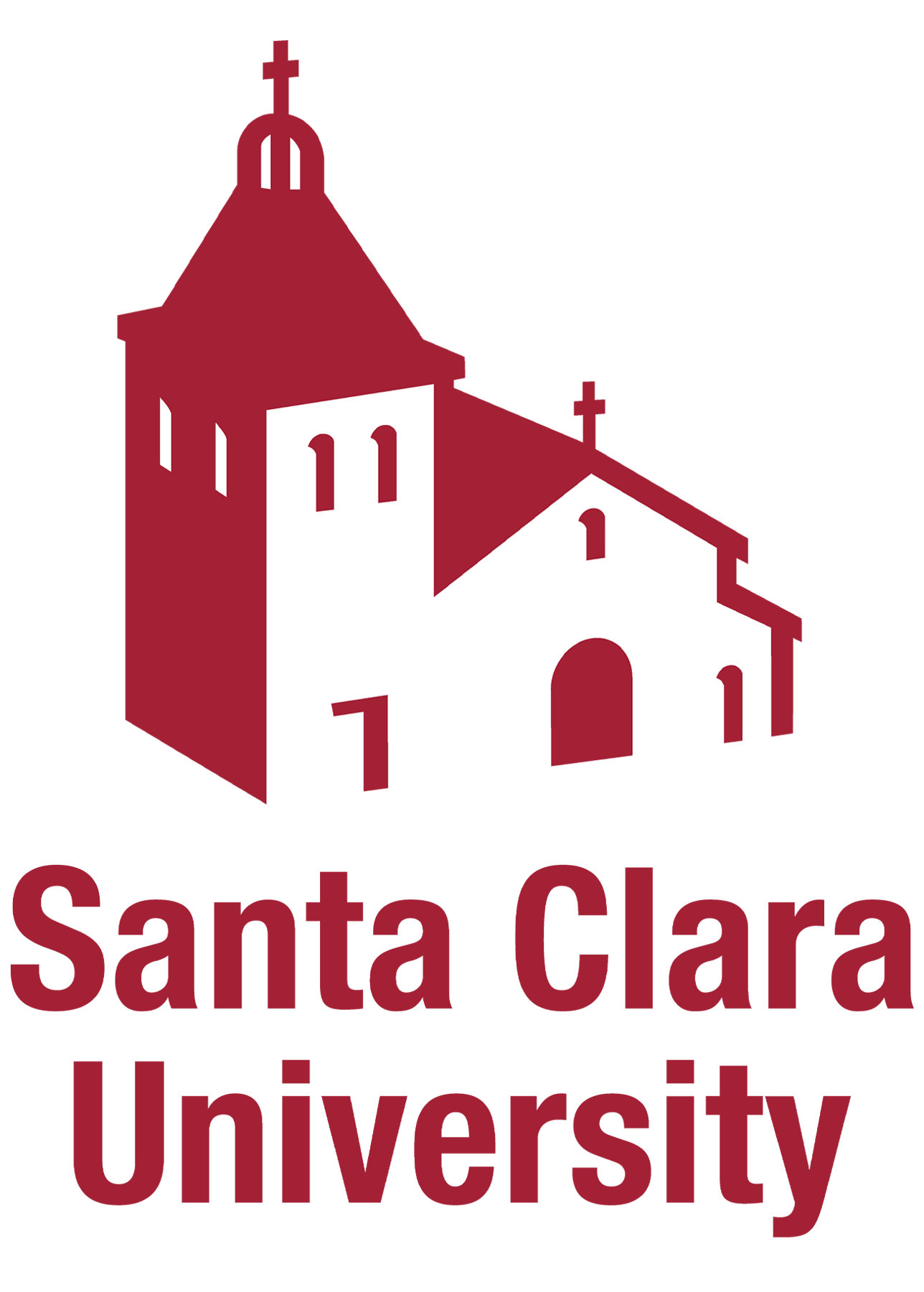
Santa Clara University
Intelligent Score: 95.51In-state: $52,998
Out-of-state: $52,998
In-state: $23,507
Out-of-state: $23,507
SAT: 1270-1450
ACT: 28-32
$755
On-Campus, Online
California Commission of Teacher Credentialing
33-37

University of Pennsylvania
Intelligent Score: 95.49In-state: $53,166
Out-of-state: $53,166
In-state: $37,678
Out-of-state: $37,678
SAT: 1460-1570
ACT: 33-35
$2,471
On-Campus
Middle States Commission on Higher Education
30

University of Wisconsin - Madison
Intelligent Score: 95.38In-state: $9,273
Out-of-state: $37,161
In-state: $10,728
Out-of-state: $10,728
SAT: 1260-1460
ACT: 27-32
Resident: $801
Non-Resident: $1,634
On-Campus
Higher Learning Commission
30

University of Illinois at Urbana - Champaign
Intelligent Score: 95.07In-state: $14,317
Out-of-state: $33,824
In-state: $15,016
Out-of-state: $15,016
SAT: 1200-1460
ACT: 27-33
In-State: $574
Out-of-State: $1,240
On-Campus
Higher Learning Commission
32

University of Michigan Marsal Family School of Education
Intelligent Score: 94.21In-state: $16,520
Out-of-state: $53,669
In-state: $24,344
Out-of-state: $24,344
SAT: 1340-1520
ACT: 31-34
Resident: $630 - $1,085
Non-Resident: $1,408 - $2,170
On-Campus
Council for the Accreditation of Educator Preparation
36-62

UF College of Education
Intelligent Score: 93.11In-state: $4,477
Out-of-state: $25,694
In-state: $10,770
Out-of-state: $10,770
SAT: 1290-1460
ACT: 29-33
Resident: $530
Non-Resident: $1,255
On-Campus
Council for the Accreditation of Educator Preparation
30-36

Indiana University - Bloomington
Intelligent Score: 92.83In-state: $9,815
Out-of-state: $36,194
In-state: $9,786
Out-of-state: $9,786
SAT: 1120-1350
ACT: 24-31
Resident: $460
Non-Resident: $1,545
On-Campus, Online
Higher Learning Commission
36

Seattle University
Intelligent Score: 90.62In-state: $47,565
Out-of-state: $47,565
In-state: $13,500
Out-of-state: $13,500
SAT: 1130-1330
ACT: 24-30
$706
On-Campus
Northwest Commission on Colleges and Universities
60
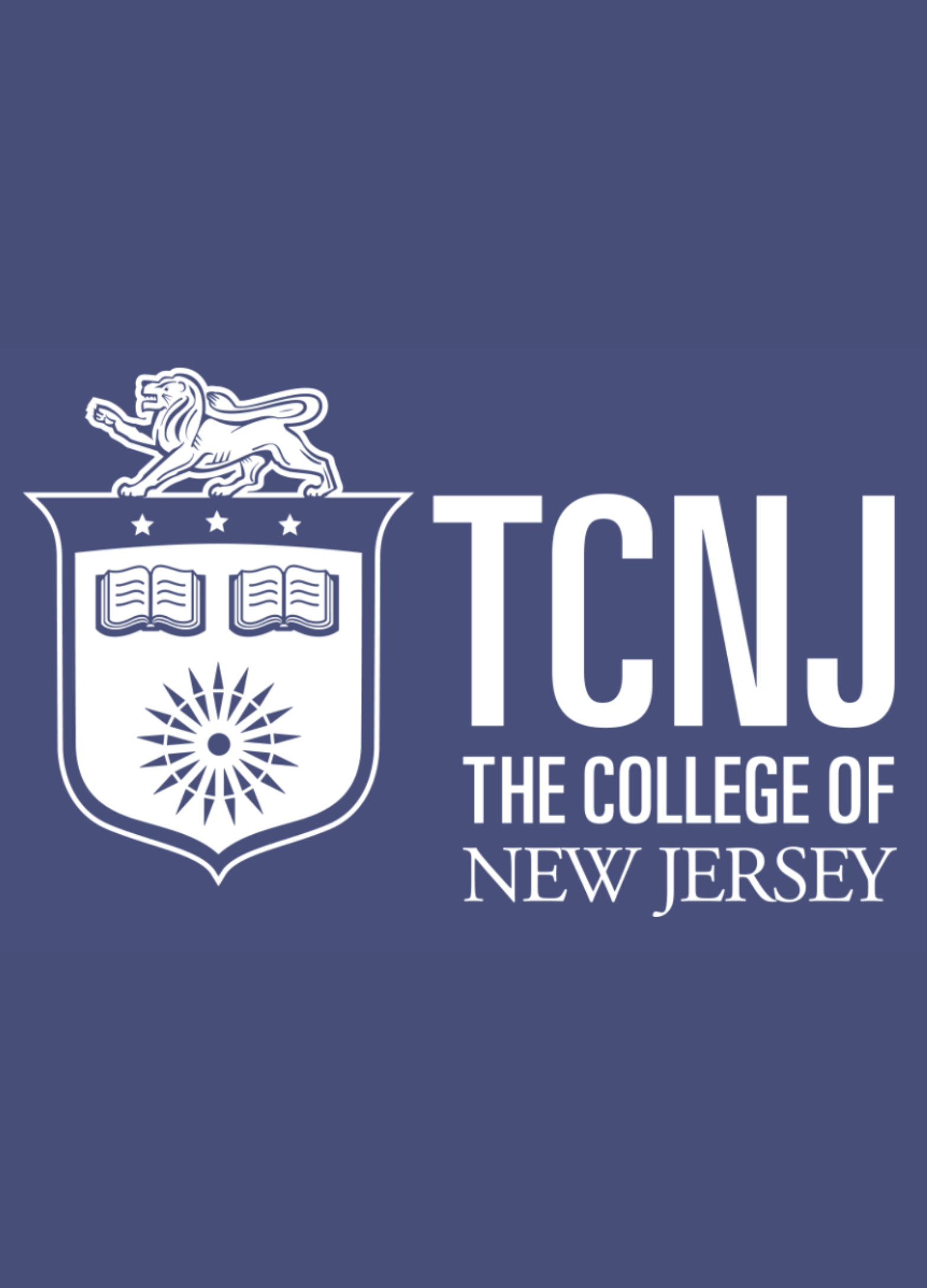
The College of New Jersey
Intelligent Score: 89.38In-state: $13,239
Out-of-state: $25,217
In-state: $14,554
Out-of-state: $14,554
SAT: 1140-1320
ACT: 24-30
$980
Hybrid
Association for Advancing Quality in Educator Preparation
30-39

University at Albany
Intelligent Score: 89.18In-state: $7,070
Out-of-state: $16,980
In-state: $11,310
Out-of-state: $11,310
SAT: 860-1060
ACT: N/A
Resident: $608
Non-Resident: $1,119
On-Campus, Online
Association for Advancing Quality in Educator Preparation
30-67

University of California, Irvine
Intelligent Score: 88.61In-state: $11,442
Out-of-state: $41,196
In-state: $11,442
Out-of-state: $11,442
SAT: 1310-1530
ACT: 30-35
Resident: $340
Non-Resident: $760
On-Campus
Western Association of Schools and Colleges Senior College and University Commission
72
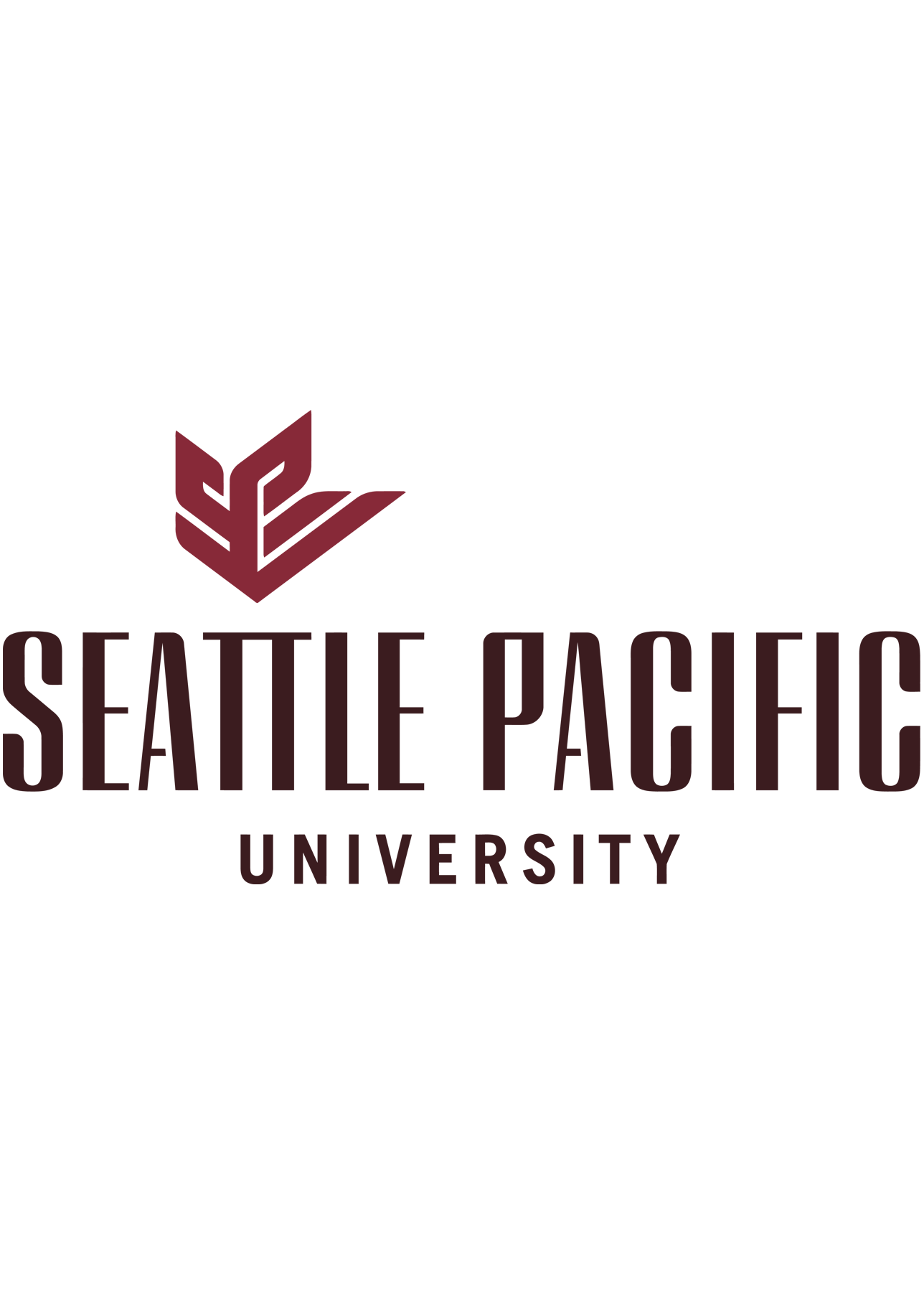
Seattle Pacific University
Intelligent Score: 86.49In-state: $46,728
Out-of-state: $46,728
In-state: $31,896
Out-of-state: $31,896
SAT: 1010-1160
ACT: 20-27
$670 - $735
On-Campus, Online
Professional Educator Standards Board
56-62
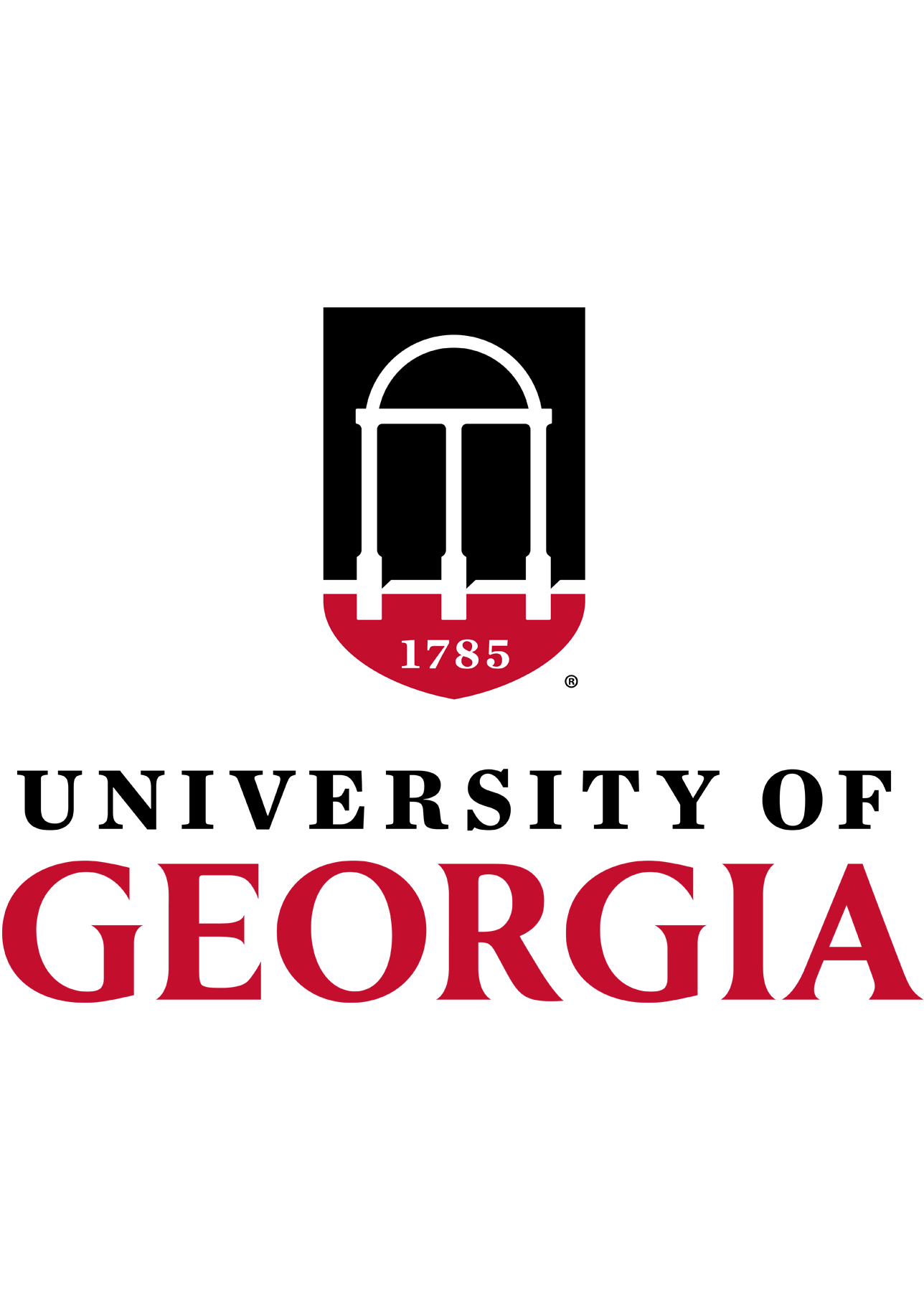
University of Georgia College of Education
Intelligent Score: 82.35In-state: $9,790
Out-of-state: $28,830
In-state: $8,878
Out-of-state: $8,878
SAT: 1250-1460
ACT: 29-33
Resident: $417
Non-Resident: $1,082
On-Campus, Online
Southern Association of Colleges and Schools Commission on Colleges
36-51
How to Choose a Master’s in Teaching Program
Choose your area of study
Teaching is a broad field, so many students choose a specialty for their education career. For example, someone who wants to teach advanced mathematics courses may benefit from specializing in math education. Some teachers major in teaching and minor in their preferred content areas, so look for opportunities to combine education coursework with classes in language arts, math, chemistry, or another subject. Other common specialization options include educational technology, educational theory, early childhood education, elementary education, and school counseling.
If you want to work as a principal, look for schools offering educational leadership and educational administration courses. Another option is to minor in business to gain experience with budgeting, managing staff, and other administrative duties.
Research schools and programs
Many schools offer graduate degrees in this field, so it’s important to research your options carefully. First, think about whether you want to attend in-person classes or complete your coursework online. Although online education master’s degree programs allow you to learn at your own pace, some students prefer the on-campus experience.
Next, check each school’s accreditation status. An accredited school meets certain standards related to graduation, student retention, and employment rates, so it’s a mark of quality.
The final step is to narrow down your list of options until you have no more than five education programs to consider. Contact admissions counselors, talk to current students, and use school websites to learn more about each program.
Prepare for tests and applications
Some colleges require prospective graduate students to complete the Graduate Record Examination before enrolling in a master’s in teaching program. The GRE assesses your critical thinking, numerical reasoning, verbal reasoning, and analytical writing skills. If you haven’t taken a standardized test in several years, give yourself plenty of time to study.
It’s also common for master’s in teaching programs to require letters of recommendation, college transcripts, and other application documents. If you don’t have these documents readily available, start gathering them well in advance of your application deadlines.
Select your program
If you receive multiple acceptance letters, review them carefully. Ensure you understand the total cost of attendance, the number of credits required, and other program details. If you’re not interested in full-time enrollment, make sure each program is available to part-time students. Verifying these details makes it easier to select an education master’s degree program that suits your schedule and your budget.
Determine how you’ll pay for your degree
Many people don’t have enough cash on hand to cover the full cost of a master’s in teaching program. Fortunately, you have several payment options. Private student loans are an option, but they typically have high interest rates and strict repayment terms.
It’s also wise to apply for merit-based and need-based scholarships, especially if you have limited funds. You may even qualify for scholarships based on your membership in professional organizations or formal social groups. For example, some educational associations offer scholarships for teachers and school administrators. Make sure to fill out the Free Application for Federal Student Aid as early as possible. Many scholarship programs use this to determine need.
What Can You Expect From a Master’s in Teaching Program?
A master’s in teaching degree program covers several topics of interest to educators. Students learn more about developing lesson plans, managing student behavior, collaborating with other education professionals, and creating engaging student materials. Many programs also offer coursework in elementary education, educational administration, school counseling, educational theory, and education law.
Teaching is a hands-on profession, so it’s common for master’s in teaching programs to require internships, classroom observation, student teaching, or field experiences. For example, students may have to complete 25 hours of classroom observation during one semester of study. Practical experiences give students the opportunity to learn from experienced educators and discover ways to improve their own teaching practices.
The length of a master’s in teaching program depends on the number of credits a student must complete. In many cases, it’s possible to finish this type of program in one year of full-time study. However, it may take two years for students who need extra time to finish their student teaching or complete in-depth research projects. It takes 3-4 years to complete a master’s in teaching on a part-time basis.
Potential courses you’ll take in a master’s in teaching program
- Education Law. Teachers and school administrators must follow several laws, including the Individuals with Disabilities Education Act (IDEA) and the Family Educational Rights and Privacy Act (FERPA). Education law courses provide an overview of relevant laws and help students understand how to comply with them. Students also learn about the potential penalties for noncompliance.
- Classroom Management. Educators are responsible for keeping students engaged and focused throughout the school day. A course on classroom management gives students the tools they need to manage disruptive behavior, create an organized educational environment, and foster motivation.
- Educational Research. Teachers must be able to understand and evaluate a wide variety of research materials. This class helps students develop foundational skills, such as distinguishing between quantitative and qualitative research, identifying reputable data sources, and summarizing published research. Some schools also require students to propose their own research projects.
- Education Technology. Today’s educators use apps, laptops, tablets, digital whiteboards, and other high-tech tools to present information to their students. This course helps educators develop the skills they need to integrate technology into their lesson plans.
- Curriculum Development. Lesson planning is important, but every lesson is part of a larger curriculum based on district and state standards. In this course, students learn how to create learning experiences that are both engaging and age-appropriate.
Master’s in Teaching Degree Frequently Asked Questions
How do I apply to a master's in teaching degree program?
Before you apply, contact an admissions counselor at each school you’re considering. They’re happy to answer questions about entrance requirements, campus life, and other important topics. If your preferred program requires GRE scores, schedule the test as soon as possible. The GRE has a writing component, so you won’t have your official score until 8-10 days after you take it. If you wait too long to take the test, you may not get your score before the application deadline.
Many programs require letters of recommendation, college transcripts, and information about your professional background. Start compiling these materials early on to avoid having to scramble as the deadline draws closer.
How much does a master's in teaching degree cost?
According to the National Center for Education Statistics, the cost of tuition for a master’s degree program averages out to $19,749 per academic year. However, tuition isn’t the only cost associated with obtaining a graduate degree. Students typically have to pay for books, course software, and other educational materials.
It’s easy to assume that online programs are less expensive than in-person programs, but that’s not always the case. Some schools charge a technology fee to access class resources outside of campus. As a result, an online degree may actually cost more than an in-person degree.
How long does it take to earn a master's in teaching degree?
Program completion time varies based on a student’s enrollment status, the number of credits required, and the type of program selected. For example, it takes part-time students longer to complete a master’s in teaching than it takes full-time students.
In some cases, online programs last longer than in-person programs. This is often the case when students must complete field placements or classroom observations. Unlike online classes, these requirements can only be fulfilled during school hours, so it takes longer to complete them.
